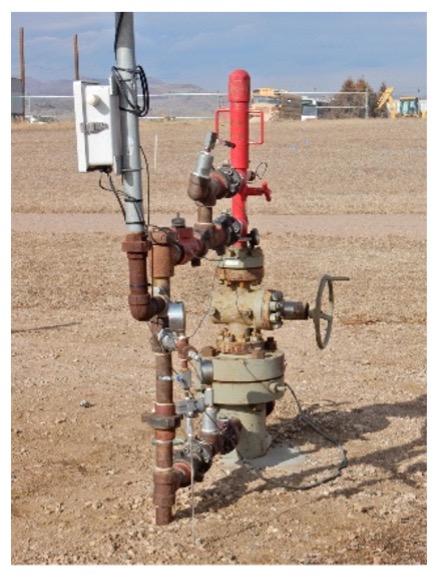Upstream Pipeline Safety, Integrity and Detection (UPSIDE)

Summary:
UPSIDE is a major project with a collaboration between Colorado State University’s (CSU) METEC facility and Southern Methodist University (SMU). The major aim of this project is to better understand sub-surface gas migration in Upstream pipelines, i.e., Flowlines: pipelines that transport fluid from the wellhead to/between individual equipment in a well site, and Gathering lines: pipelines that transport fluids from a well pad to gathering compressor stations or to processing plants. This project studies two major aspects of gas leaks in Upstream pipelines, 1.) how gas migrates underground, and 2.) how to best detect sub-surface gas leaks on the surface and in the atmosphere.
Objectives:
The objectives of the UPSIDE project are:
- To focus on leaks from flowlines, and gathering lines that have mixed hydrocarbon gas content, typically in upstream operations. These include heavier-than-air gases.
- To investigate and document current leak detection practices for flowlines and gathering lines.
- To conduct experimental work investigating how these gases move in the subsurface in varying leak rates, leak depths, and varying gas composition.
- To investigate how leaks ‘present’ at the surface for monitoring and detection. Additional project modules tests leak detection methods in a field laboratory and at operators’ facilities.
- To improve understanding of the performance of existing and emerging leak detection methods and from this, to develop recommendations for flow line and gathering lines monitoring.
Project Plan:
The project has conducted field experiments to test leak detection and quantification solutions in controlled conditions at CSU’s Methane Emissions Technology Evaluation Center (METEC). In conjunction with a companion project (RPLUME) the study team has installed new pipeline test beds at METEC including both ‘rural’ and more built-up environments ‘Urban’ testbeds. Fundamental work aims to understand underground gas migration, with particular emphasis on the gas mixtures typically seen in upstream operations. The METEC testbeds will also be utilized for controlled testing of leak detection solutions, which will then be deployed in the field for evaluation.
Industry participation is key to project success. The team assembled an advisory board that is providing experience and input on leak scenarios in the field. Operators are also helping select the types of leak detection solutions to test and will be part of the field testing. If you are interested in participating, contact us – there is no financial commitment that is required – just time, data, and potentially hosting some fieldwork.
Schedule:
The project kicked off, and test beds were updated at METEC in late 2020. A 3D above-ground gas plume mapping and testing of the variability in leak characteristics on above-ground leak detection were performed at METEC in late 2020-early 2021. The advisory team is active and always welcomes additional members to provide input. Testing of leak detection and quantification solutions, gas plume mapping, and subsequent field test planning is scheduled to go through Summer’23.
Related Projects: UPSIDE shares test facilities, advisory board, and some testing with RPLUME.
Opportunities to Participate:
Interested in participating? There are several ways to get engaged in this project:
- Industry advisory Board (IAB) – The IAB is an opportunity for stakeholders of all types to be included in planning and steering the focus of controlled experiments.
- Controlled testing – Controlled testing at METEC will be performed following the protocol developed in this project. Contact us for information on how to participate.
- Field test sites – Operators may partner with us to test technologies during the field testing. Contact us for information on how to participate.
Project Gallery:

Funding Provided by:
Mark Martinez and Joey Irwin Memorial Public Projects Fund
Project Overview:
Advisory Panel & Collaborators:
Colorado Oil and Gas Conservation Commission
Pipeline and Hazardous Materials Safety Administration
White Plains, NY Fire Fighter
Poudre Fire Authority
West Metro Fire Protection District, CO
Western Midstream
Con Edison
SoCalGas
Southern Methodist University (SMU)
Pacific Gas and Electric
